'Russian nationalists' behind Montenegro PM assassination plot
- Published
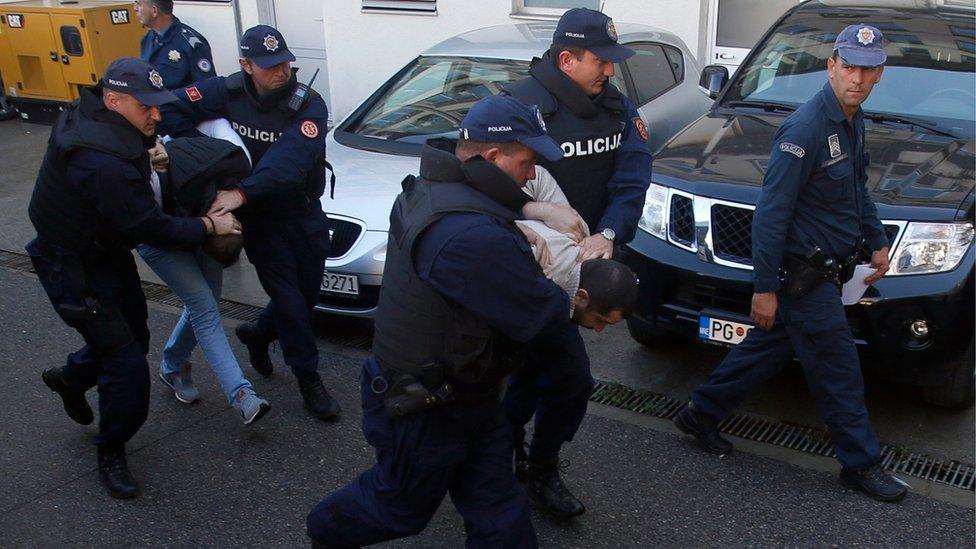
Serbians arrested in Montenegro on 16 October have been charged with terror offences
Montenegro's chief special prosecutor has said "nationalists from Russia" were behind an attempt to assassinate the PM and carry out a coup.
Milivoje Katnic said the plot involved killing pro-Western PM Milo Djukanovic with a professional long-distance sharpshooter.
The plotters are accused of planning to break into parliament and bring a pro-Russian government to power.
There is no evidence the Russian state was involved.
About 20 people were arrested on Montenegro's election day on 16 October and were initially identified as Serbian paramilitaries.
They are now known to include Serbian and Montenegrin citizens, 14 of whom remain in custody.
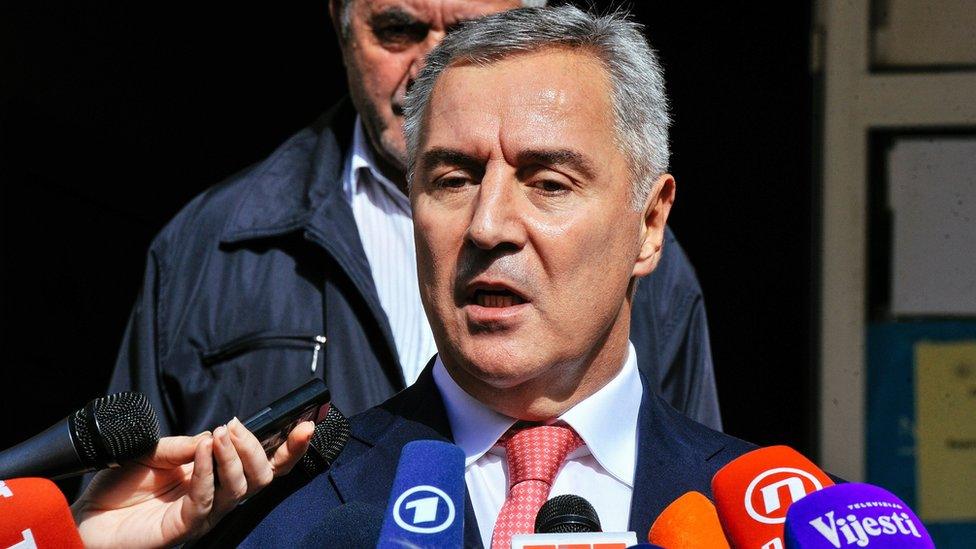
The plot allegedly included the professional assassination of Mr Djukanovic
"We don't have any evidence that the state of Russia is involved in any sense... but we have evidence that two nationalists from Russia were organisers," Mr Katnic said.
He said his counterpart in Serbia had those people "under its supervision" and prevented the plot from going ahead.
"Those persons are not on the territory of Serbia anymore. I don't know where they are now, in Russia or somewhere else," he said.
After the mass arrest in October, Mr Djukanovic said around €125,000 ($138:000; £111,000) had been found as part of the alleged plot, along with uniforms.
Since splitting from Serbia in 2006, Montenegro has forged close ties with the EU and Nato, both of which it aims to join.
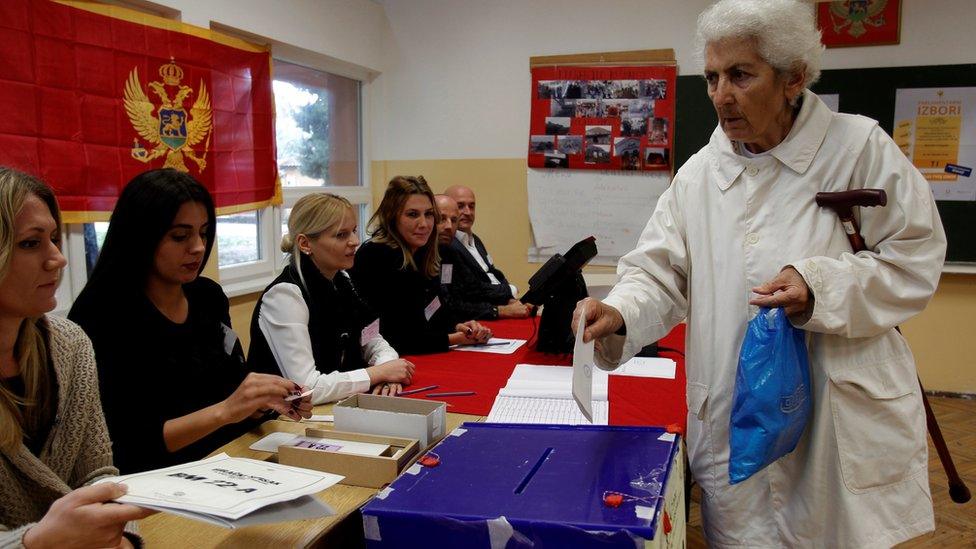
The October election was presented a a choice between the West and Russia
Mr Djukanovic's election bid had presented the vote as a choice between the West or becoming a "Russian colony".
The country is widely expected to join Nato in early 2017, despite strong opposition from Russia.
Mr Katnic said the alleged coup plot was designed to prevent that from happening, along with disrupting closer ties with Europe.
Ahead of the election, Mr Djukanovic had accused some opposition groups of receiving Russian funding. In return, they have accused Mr Djukanovic of corruption and cronyism, which he denies.
Mr Djukanovic's Democratic Party of Socialists won the October election, but did not achieve the overall majority he had hoped would give him a mandate for closer ties to the West.
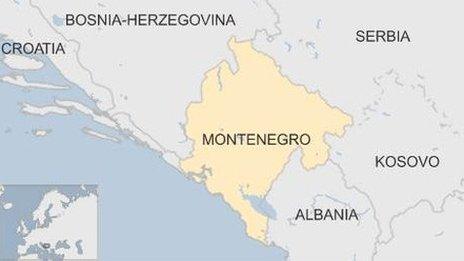
Many Montenegrins are unhappy that Mr Djukanovic is taking the country into Nato.
They remain angry that Nato bombed Serbia and Montenegro in 1999 as part of a strategy to halt the killing and expulsion of ethnic Albanians in Serbia's then southern province of Kosovo.
Montenegro, which has a population of some 630,000, has in recent years seen an influx of Russian money, homebuyers and tourists.
- Published25 October 2016
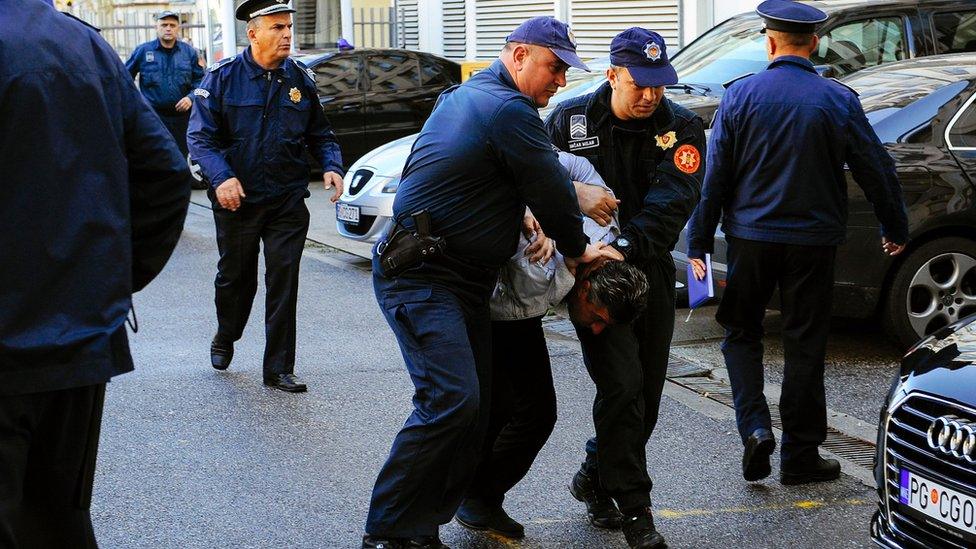
- Published17 October 2016
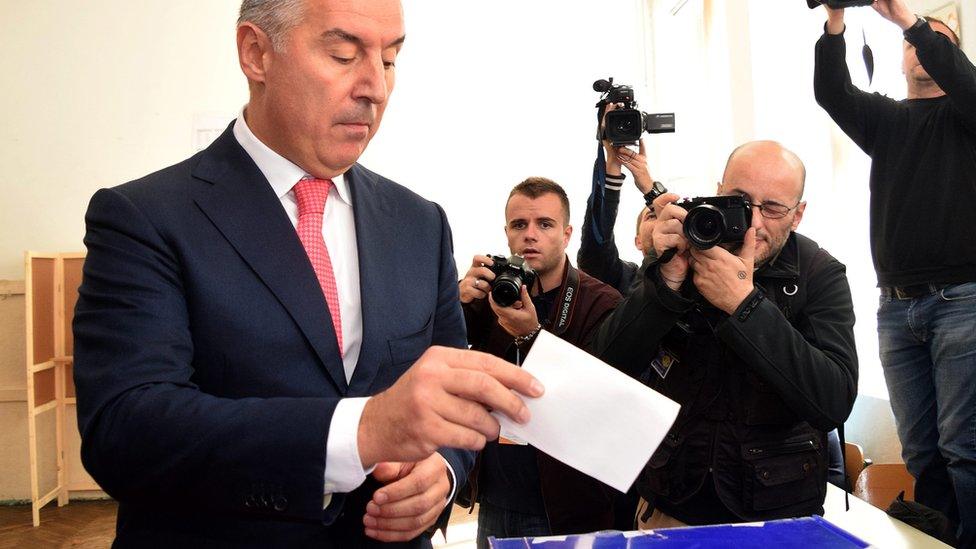
- Published15 February 2016
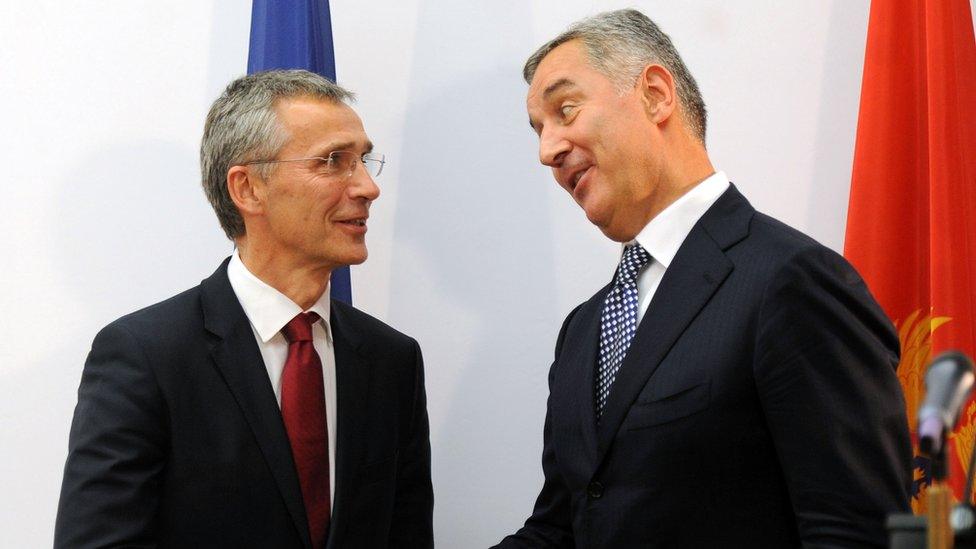
- Published19 May 2016
- Published14 November 2022